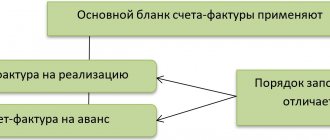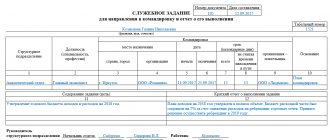If one party, the commission agent, assumes an obligation to the other, the principal, a commission agreement is concluded for the sale of goods . The document is drawn up in two copies. For a fee, the commission agent enters into one or more transactions in the interests of the principal, but on his own behalf.
commission agreement for the sale of goods
Get a sample for free!
Register in the online document printing service MoySklad, where you can: completely free of charge:
- Download the form you are interested in in Excel or Word format
- Fill out and print the document online (this is very convenient)
A commission agreement for the sale of goods is concluded either for a specific period or without a validity period. It can indicate the territory within which the commission agent can trade.
How to draw up a commission agreement: sample and instructions
The agreement is drawn up in any form. Download our sample commission agreement, you can use it as a template.
Although the form of the document is not approved by law, in order for the agreement to have legal force, it must indicate:
- Date of compilation.
- Details of the parties - passport details, company name, commission agent's phone number, account number and address.
- The name of the product, its cost, shortcomings and level of wear, the time frame within which it must be sold.
- Remuneration for the commission, its amount and payment procedure, as well as the conditions under which the goods are accepted for commission.
- Features of markdown of goods, procedure for carrying out the procedure.
- Information about settlements between the parties.
- Conditions for payment for goods in storage.
The Civil Code of the Russian Federation does not have specific requirements for the legal status of the commission agent and principal: they can be both legal entities and individuals.
Form
The procedure for drawing up a DC is regulated by Part Two of the Civil Code of the Russian Federation in Law No. 14-FZ of January 26, 1996 (as amended on December 27, 2019, as amended on April 28, 2020).
There are no specific requirements for the form of a DC in the legislative acts of the Russian Federation, therefore, when drawing up such an agreement, general provisions are used. In practice, usually the DC is drawn up in ordinary written form (Articles 158, 160, paragraph 1 of Article 161 of the Civil Code of the Russian Federation). A written contract involves the preparation of both one document, endorsed by the parties, and several additional forms (for example, the main agreement and additional agreements attached to it, acceptance certificates, invoices, specifications, etc.), containing aggregate conditions that suit both parties (Clause 2 of Article 434 of the Civil Code of the Russian Federation).
The DC receives legal status if the document is drawn up in accordance with clause 3 of Art. 438 Civil Code of the Russian Federation. At the same time, for some types of DC, written documentation, according to legislative norms, is mandatory. For example, a written form of a contract is required for commission trading of certain goods. According to clause 9 of the Rules for the commission sale of non-food products established by Government Decision of the Russian Federation No. 569 of 06/06/1998, the acceptance of non-food products on commission is carried out by drawing up a receipt, invoice and other forms that are signed by the parties to the agreement, displaying the following data:
- Form numbers.
- Dates when it was completed.
- Names and details of the parties to the agreement, identifying them.
- Product names.
- Level of wear and comments of used products.
- Costs in rubles.
- Amounts of commission payment, etc.
( Video : “Commission Agreement”)
Subject and parties of the agreement
The subject of the DC is the activity of the commission agent in carrying out transactions. Such transactions include bilateral or multilateral agreements that do not contradict these legislative provisions, which ensure the imposition of obligations, with their implementation without the presence of the principal. At the same time, if necessary, the result of the execution of the agreement can be attributed to the principal.
Some people believe that a commission agent can only execute sales and purchase agreements (SPA). However, this opinion is incorrect. To fulfill the DC, the commission agent can draw up various agreements, for example, for the provision of paid services:
- services;
- contract work;
- leasing services;
- guarantees, etc.
The parties to the DC are the commission agent and the principal. At the same time, an individual or institution performing a transaction in favor of the principal has the right to become a commission agent. The principal can be the person in whose favor the transaction is carried out.
( Video : “The essence of the commission agreement”)
Commission agreement for the sale of goods with an individual: sample
As a sample of a commission agreement for the sale of goods with an individual, you can take the standard version, which can be downloaded above. But you need to take into account several features:
- Condition of the product: wear, presence or absence of damage, appearance.
- Grounds and procedure for a possible price reduction.
- Terms of sale.
Download our commission agreement. The example contains all the necessary points.
Supply contract for the sale of goods: sample
The definition of a supply agreement is given in Art.
506 of the Civil Code of the Russian Federation, according to which the supplier undertakes to transfer the goods to the buyer within the specified period or terms. The buyer uses the product in his business or in other ways not related to personal or family use. He can also sell the product in the future.
Note! A contract for the supply of goods, the intended use of which is further sale, has its own characteristics. In particular, it may indicate that payment for the supplied goods will be made after sale. The buyer actually acts as an intermediary, and his profit lies in the difference between the purchase price from the supplier and the subsequent sale price.
A sample of such an agreement can be downloaded from the link: Supply contract for sale - sample.
IMPORTANT! Despite the usual fixation of the payment period in days after the sale of the goods, we also recommend specifying a specific date or specific payment period. For example, “but no later than 01/01/2018” or “but no later than 5 days from the date of signing the specification.” A simple link to the sale carries the risk of recognizing the deadline as inconsistent, since the sale may not occur (resolution of the 7th Arbitration Court of Appeal dated March 20, 2017 No. 07AP-1431/2017 in case No. A03-20636/2016).
Commission agreement for the provision of services: sample
You must understand that, in essence, any commission agreement is a contract for the provision of services, since its subject is the services of the commission agent. If the commission agent sells services provided by the principal. For example, a commission agent sells in the regions the consulting services of a company located in Moscow. This will be the commission agreement for the provision of services. The sample document from MySklad fully complies with the requirements of the Civil Code of the Russian Federation. Download it, fill in your details and use it.
More than 1,000,000 companies already print invoices, invoices and other documents in the MyWarehouse service Start using
When drawing up a commission agreement for the sale of any product, the principal must receive a report from the commission agent.
Next, we will examine frequently asked questions about the preparation and execution of a commission agreement for the sale of goods.
What is the difference between an agency agreement and a commission agreement?
The main difference between an agency agreement and a commission agreement is that an agent can act both on his own behalf and on behalf of the principal - an individual or a legal entity. The commission agent can only act on his own behalf.
There are other differences:
- If the agent acts on behalf of the principal, he becomes obligated and acquires his rights.
- If an agent works under a contract on his own behalf, the agent becomes obligated and acquires rights under transactions concluded with third parties.
- An agency agreement may limit the rights of the principal and agent to conclude other agency agreements, but a commission agreement cannot contain such restrictions.
See an example of a commission agreement here.
Commission agreement and agency agreement. What is the difference?
Under a commission agreement, an attorney (one party) undertakes to perform certain legal actions on behalf of the principal (and not on his own behalf, as in a commission agreement). This is the main difference. In addition, the principal under the agency agreement becomes obligated and acquires the rights of an attorney in transactions with third parties. Under a commission agreement, the obligations are borne by the commission agent.
Form of the contract and rules for its preparation
The legislation of the Russian Federation does not establish a mandatory form of DC. The document must be drawn up in writing and clearly define the essence of the transaction, the conditions for its implementation and payment. It is important to understand that the responsibilities of the commission agent include not only conducting the transaction itself, but also reporting on the funds received and spent and handing over the proceeds to the principal. This condition implies a difference between the period of the transaction itself (for example, the sale of a product) and the period of validity of the contract.
The commission agreement provides for a unilateral or multilateral agreement with the signatures of all parties involved. However, a unilateral obligation of the commission agent can also act as a DC. This form is often used in thrift stores, when the consignor is given a commission agent document, which indicates the name of the goods, the date of its receipt, the period of sale, the selling price and the amount remaining to the commission agent to pay the fee, as well as his obligations for the safety of the goods.
Main sections
Despite the absence of a mandatory form, the following sections should be entered into the DC:
- Information about the parties. For an individual: full name, address, passport details, contact details. For a legal entity: full name, TIN, legal address, bank details, full name of the manager who signed the document.
- DK subject. The type of transaction and its main parameters are clearly defined.
- Price. This important characteristic of the DC subject should be given special attention. In essence, this is the revenue that the principal wants to receive, but it is agreed by the commission agent taking into account the real market value, scarcity, condition of the goods and other factors. Often, the possibility of adjusting it after a certain time is immediately provided if implementation is impossible (with or without agreement with the committent).
- Payment procedure. The amount of remuneration and expenses of the commission agent when carrying out the transaction is determined. Most often it is determined as a percentage of the revenue received for a sold (purchased) product or service, but a specific amount can also be set. The deadline for submitting the transaction report should be given. The procedure for issuing proceeds to the principal and paying remuneration to the commission agent is established.
- Rights and obligations of the parties. Standard wording: “The commission agent is obliged to carry out a commission transaction on behalf of the principal on terms favorable to him with the transfer of a report to him upon completion of the work, and the principal is obliged to pay remuneration and pay other expenses in accordance with the agreement.” In addition, the commission agent has the right to thoroughly check the entire condition of the transferred property, as well as to involve third parties to complete the transaction, i.e. enter into a subcommission agreement.
- Responsibility of the parties. The contract of sale should clearly stipulate responsibility for improper storage and damage to transferred property, improper fulfillment of obligations, and delays in sales and payment. The possibility of force majeure circumstances is taken into account.
- Dispute resolution. All disagreements should be resolved through negotiations, but in the absence of agreement, disputes are resolved in accordance with the Laws of the Russian Federation.
- Deadlines. The validity period of the commission agreement for the sale of goods must be established. It may involve the completion of a single transaction, or extend over a long period with various types of cooperation between the parties. The agreement may establish specific terms for the transaction or be of unlimited duration. The possibility, conditions and procedure for early termination of the agreement should be specified.
The DC may include additional and special conditions.
It is important that the document ensures the mutual benefit of the parties and excludes any illegal actions. Download a standard commission agreement:
Features of the commission agreement
An important difference between a DC and other similar types of transactions is the transfer of property or funds to a commission agent for a sufficiently long period of time in order to perform a certain action. Moreover, he performs all actions on his own behalf, as the owner of the property, and therefore is not limited in the ways of solving the task. No interest or taxes are charged on these funds and property until the transaction is completed.
When performing a commission procedure, relationships arise between:
- commission agent and principal provided for in the contract;
- commission agent and third parties (sub-commission agent, sellers, buyers, etc.).
Thus, the principal has no relationship with a third party. All actions are performed directly by the commission agent, to whom all necessary rights are transferred. The principal can undertake contact with a third party only if this person does not fulfill the obligations under the agreement with the commission agent, and therefore the principal may incur losses.
Another feature of DC is related to payments. The legislation does not provide for prepayments. As a rule, the commission agent carries out all procedures at his own expense, and the principal compensates all expenses after receiving a report on the completed transaction. The reward is also paid upon completion of the transaction. If a different payment procedure is provided, this should be clearly reflected in the DC.
Veronica Petrovskaya
Lawyer, specialization - civil law
In accordance with Article 992 of the Civil Code of the Russian Federation, the commission agent must carry out a transaction with the greatest benefit for the principal. The desired amount is specified in the contract. If the commission agent managed to achieve higher indicators, then the additional income is divided equally or in the manner prescribed by the DC. In the event that the property is sold below the agreed amount, the principal's losses are compensated by the commission agent (Article 995 of the Civil Code of the Russian Federation). The forcedness of such a transaction may be challenged in court.









